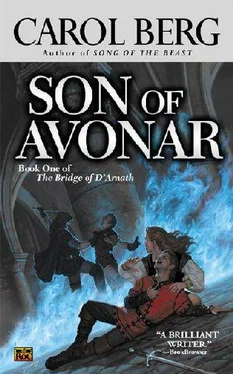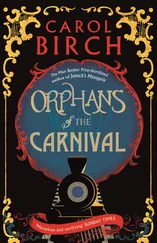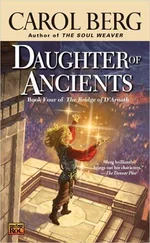Carol Berg - Son of Avonar
Здесь есть возможность читать онлайн «Carol Berg - Son of Avonar» весь текст электронной книги совершенно бесплатно (целиком полную версию без сокращений). В некоторых случаях можно слушать аудио, скачать через торрент в формате fb2 и присутствует краткое содержание. Город: New York, Год выпуска: 2004, ISBN: 2004, Издательство: Roc, Жанр: Фэнтези, на английском языке. Описание произведения, (предисловие) а так же отзывы посетителей доступны на портале библиотеки ЛибКат.
- Название:Son of Avonar
- Автор:
- Издательство:Roc
- Жанр:
- Год:2004
- Город:New York
- ISBN:0-451-45962-8
- Рейтинг книги:3 / 5. Голосов: 1
-
Избранное:Добавить в избранное
- Отзывы:
-
Ваша оценка:
- 60
- 1
- 2
- 3
- 4
- 5
Son of Avonar: краткое содержание, описание и аннотация
Предлагаем к чтению аннотацию, описание, краткое содержание или предисловие (зависит от того, что написал сам автор книги «Son of Avonar»). Если вы не нашли необходимую информацию о книге — напишите в комментариях, мы постараемся отыскать её.
But Seri, a Leiran noblewoman living in exile, is no stranger to defying the unjust laws of her land. She is sheltering a wanted fugitive who possesses unusual abilities-a fugitive with the fate of the realms in his hands...
Son of Avonar — читать онлайн бесплатно полную книгу (весь текст) целиком
Ниже представлен текст книги, разбитый по страницам. Система сохранения места последней прочитанной страницы, позволяет с удобством читать онлайн бесплатно книгу «Son of Avonar», без необходимости каждый раз заново искать на чём Вы остановились. Поставьте закладку, и сможете в любой момент перейти на страницу, на которой закончили чтение.
Интервал:
Закладка:
Still holding my father’s arm, I tossed the yellow and purple garlands the servants had brought from the market that morning. I came near letting loose a most unmaidenly yell at Tomas, afraid his manly bearing might prevent his looking up at us as the Third Legion of Leire rode through the cheering crowds of servants, boys, and shopkeepers, and the maidens of marriageable age being thrust into the warriors’ path. But just as the purple-robed priests carried the guide-staffs topped with the Swordsman’s rising sun and the Navigator’s crescent moon past the stoop before our own, Tomas leaned forward, laid his hand on his commander’s sleeve, and pointed up at our balcony.
Duke Evard tossed back his fair hair and fixed his attention on my face, and I felt my color rise as if I’d actually yelled out a soldier’s lewd blessing or dropped straw on Tomas’s head as I might have done in teasing one short year ago. I dropped my father’s arm and gripped the rail of the balcony. To my breathless astonishment, the duke pulled out of the ranks and waved his troops on forward while he positioned his mount just beneath me, stood on his saddle, and reached for our iron trellis that was thick with the dark green leaves and orange blossoms of trumpet vines. As agile as an Isker acrobat, Duke Evard shinnied up the trellis and over the rail until he stood on the balcony beside me. Bowing gallantly from the waist, he presented me with a bouquet of white lilies some admirer had thrust into his hands.
Cheeks burning, I accepted the flowers and was scarcely halfway through my curtsy when he scrambled over the rail again. To a laughing roar from the crowd and his troops, he leaped into the saddle and spurred his charger forward, retaking his position at the front. Neither he nor Tomas looked back.
Evard claimed he was my slave from that moment. It did not occur to me at the time that the daughter of the oldest house in the kingdom would make an excellent match for one with royal ambition. And neither Evard nor Tomas nor any Leiran ever mentioned that his bloody victory had exterminated the entire population of the lovely, refined Vallorean city he had conquered. Years went by before I learned that part of the story.
My father died when I was eighteen. His passing was a mercy in so many ways, both for him—a great man before his grieving decline—and for me. Though Papa was only forty-one, the tally of noble deeds we had the priests engrave upon his memorial stele in Annadis’s temple comforted us that the Holy Twins would not forget him or our family when telling stories of earthly heroes. And I could not be betrothed in the year of mourning.
During that year I learned a great deal about Evard. He spent much of his time with Tomas at Comigor Keep, our musty holding on the northern downs, sparring in the fencing yard and making himself at home in our grand old library, drinking my father’s brandy and talking of those who would stand between him and the throne when King Gevron died. I had listened to men’s politics since nursery days, more than ever since my mother’s death. And so there came a time when my curiosity prodded me to question Evard’s certainties.
Year 28 in the reign of King Gevron
“But Evard,” I said on one evening, “doesn’t the law say that when only nieces and nephews are left, it’s the children of the king’s eldest sibling that will inherit?”
“Don’t trouble yourself, my duchess,” he said. “When the time comes, there will be no one but me. I have information, you see. My aide Darzid—a truly valuable addition to my staff—has discovered that Vennick has troubles with his estates. I do believe the good earl has failed to pay his levies for ever so many years, and, in fact, evidence will come to light that he has unlawfully diverted the taxes of his vassals… to his own purposes.” He widened his eyes in shock, then he and Tomas burst into laughter that I didn’t quite understand. I didn’t quite approve of it, either.
“And my cousin Frederic. Have you heard the rumors? It’s being said he’s a bastard, that my Aunt Catherine was never legally married to Colburn. Why, the whole brood could be turned out onto the streets if a witness was ever to be found to the matter. Dear Aunt Catherine, who would ever have picked her for a common whore? I couldn’t bear to see her made to do public penance, though. The thought of her shaven head nauseates me!”
“You can’t be serious! Lady Catherine?” My mind stretched yet again into unfamiliar realms.
“And I don’t think Martin is a serious contender. He has very strange friends.”
Martin, Earl of Gault, was one of my favorite people in the world. He was about forty-five and, like all Leiran men, had been a soldier. He now held a powerful position at court. A distant cousin of my mother, he was a wise, cultured, and witty man. On my seventeenth birthday, Martin had issued me an invitation to join him and some guests for a few days at his estate, assuring my father that I would be properly chaperoned. He hosted these “salons” for three days in the first week of every month, inviting a variety of fascinating and unusual people, and providing his guests with charades and plays, jugglers and mimes, word games, puzzles, and lively debates about anything and everything. Martin thought no one too young to participate if the person could make good conversation, which he denned as anything beyond fashion, horses, and the war of the moment.
I had spent my childhood with horses and dogs, playing at war with Tomas, listening to my father and his friends talk of battles and conquest, politics and managing estates. I was sure that every intelligent person in Leire believed the same as they on every matter of importance. But every day spent in the stimulating company at Windham advanced my education a whole level. There I began to learn of history, art, philosophy, and music, to question the certainties of politics and piety, and to experience the pleasures of sharp wit and well-considered disagreement.
I thought Martin would make a marvelous king, but I never said so to Evard or Tomas or even to Darzid, Evard’s charming, cynical aide who began accompanying Evard to Comigor that summer and quickly became my favorite dinner companion. Tomas disdained Martin, saying that anyone who would dress himself up as a beggar for a Long Night entertainment had too little dignity to be a sovereign. When I told Martin of my brother’s comment, he said, “It does me good to dress as a beggar now and then. Gives me wondrous understanding of my tenants and my soldiers, having to do without boots in the cold.” Though he tossed it off lightly, I knew that he meant what he said.
It was at Windham, Martin’s sprawling country house, that I met Julia, countess of Helton, a brilliant and elegant young widow. Julia was the first woman I had ever known who could hold her own in serious conversation with men. From the first evening of our acquaintance, I wanted to be like her. Fortunately, Julia’s rank made her a chaperone of impeccable credentials, for my father—and later, my brother—would never have allowed me to continue in such liberal company without.
Julia and Martin were passionately in love. They could not marry because Julia’s dead husband’s powerful family refused their consent. Martin would have had her as his mistress in an instant, but as he was third in line to the throne, Julia would not permit him to compromise his reputation. Certain influential Leirans required behavior in their kings-to-be that they did not require in their kings, she told me. Though I never saw them so much as touch hands, their intimacy was such that on occasion I felt like a crass intruder just watching one offer the other a glass of wine.
Resident in Martin’s household were two brothers, Tennice and Tanager, second and third sons of a minor baron who had too little property to share among his children. Only military service or the priesthood were considered suitable occupations for landless noblemen. The baron, unwilling for his sons to reap the scorn reserved for men who would choose temple service over arms, had sent them to serve the earl. Martin had discovered in the two a depth of talent and loyalty that quickly raised them out of the ranks and into his inner circle.
Читать дальшеИнтервал:
Закладка:
Похожие книги на «Son of Avonar»
Представляем Вашему вниманию похожие книги на «Son of Avonar» списком для выбора. Мы отобрали схожую по названию и смыслу литературу в надежде предоставить читателям больше вариантов отыскать новые, интересные, ещё непрочитанные произведения.
Обсуждение, отзывы о книге «Son of Avonar» и просто собственные мнения читателей. Оставьте ваши комментарии, напишите, что Вы думаете о произведении, его смысле или главных героях. Укажите что конкретно понравилось, а что нет, и почему Вы так считаете.












